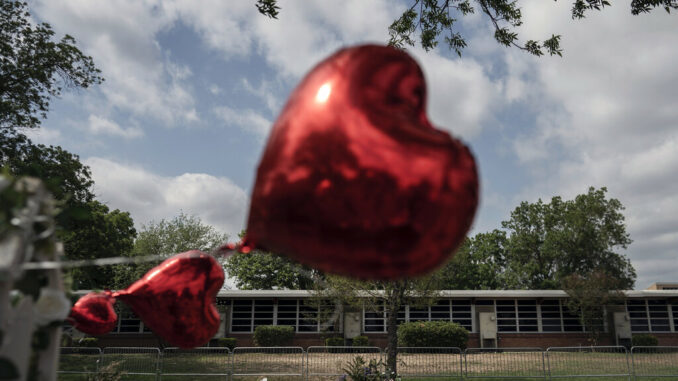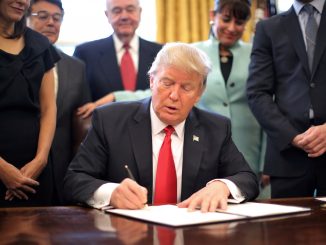

A week ago Tuesday, 2nd, 3rd, and 4th-grade students who were age 11 and under at Robb Elementary School in Uvalde, Texas were no doubt excited that they had two days left in the school year before going on summer break.
at Robb Elementary School in Uvalde, Texas were no doubt excited that they had two days left in the school year before going on summer break.
But an unspeakable tragedy happened in the middle of the day that day. An 18-year-old gunman opened fire on the classroom full of students, killing 19 of them and two teachers who tried to protect them. 17 others were injured. The gunman also shot his grandmother in the head before he went to the school.
We’re still learning more about the shooter’s actions that day, the actions (and inaction) of local law enforcement officers, as well the heroic actions of the border patrol tactical unit that ultimately went in and shot and killed the perpetrator, who had reportedly barricaded himself in the classroom.
After mass shootings happen in America, the instinctive reactions of most people are a combination of shock, horror, and sadness that such a thing would happen. Thoughts immediately turn to the victims, hoping they survived and will not be too traumatized, and the devastated family members who have to bury their loved ones unexpectedly and over something so absolutely senseless and utterly heartbreaking.
Unfortunately, the political game-playing also starts in the immediate aftermath of such horrific tragedies, with Democrats accusing Republicans of caring more for their gun collections than they do keeping children safe, and then proposing solutions that their critics say further infringe on the 2nd Amendment rights of all Americans.
Republicans, in turn, and after defending themselves against such vile accusations, propose what they feel are common-sense solutions like arming teachers, having armed security on the premises, establishing one point of entry in all schools, and implementing metal detectors.
Democrats reject such ideas because they believe only one (more gun restrictions) will prevent future mass shooting tragedies like what happened in Uvalde.
What doesn’t get discussed often enough in these situations, however, is the mental health crisis America is facing, which some have suggested is the main catalyst behind mass shootings. It took the coronavirus pandemic and the surge in violent crimes across the country that came soon after for people to start thinking more seriously about confronting America’s mental health epidemic, but not enough is being done about it because apparently, lawmakers think that posturing before the cameras and lobbing cheap shots at their political opponents on social media is the equivalent of “doing something.”
It isn’t.
I don’t have all the answers here. But I do know that more can get done to help lessen the chances that something like this will happen again when people work together than when they do the finger-pointing and the accusing and the grandstanding. As far as I can tell, none of that has ever done much in the way of protecting people.
I don’t hold out much hope that that will happen in the aftermath of Uvalde. It takes the right kind of leader to be able to bring both sides to the table for meaningful and impactful change that keeps people safe while respecting the Constitution, and President Joe Biden just isn’t that leader. At all.
Media analyst Stacey Matthews has also written under the pseudonym Sister Toldjah and is a regular contributor to RedState and Legal Insurrection.



